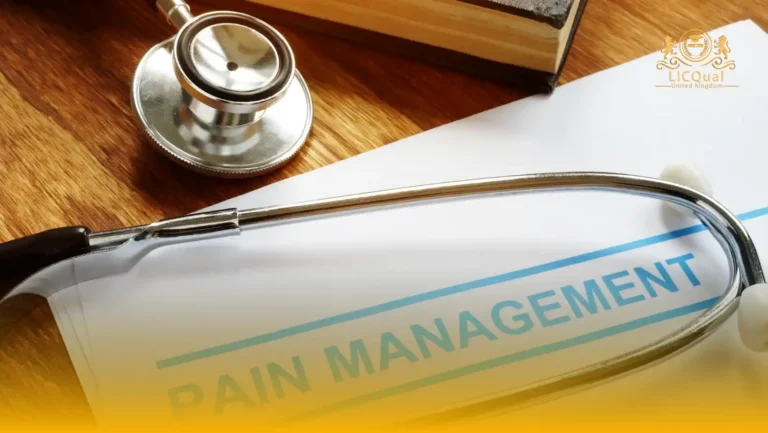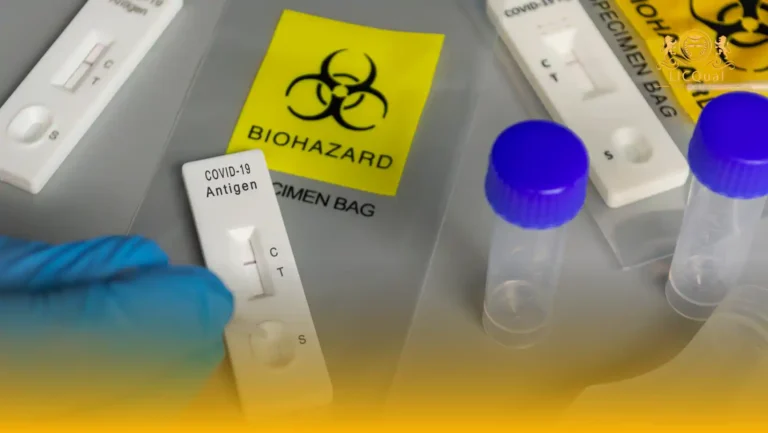As global food safety challenges continue to evolve, understanding and managing food safety hazards has never been more crucial. The LICQual Certificate in HACCP Food Safety Hazards is a highly respected, internationally recognized qualification designed to equip food industry professionals with the knowledge and practical skills to identify, assess, and control hazards that can compromise food safety.
Built upon the core principles of Hazard Analysis and Critical Control Points (HACCP), this course focuses on the critical role of hazard management in preventing foodborne illnesses, ensuring compliance with international regulations, and protecting consumer health. Whether you’re working in food production, processing, distribution, or service, this certification empowers you to build safer, more reliable food systems.
The LICQual Certificate in HACCP Food Safety Hazards provides a comprehensive exploration of the four main categories of food safety hazards—biological, chemical, physical, and allergenic—and how they can be effectively managed within a HACCP framework. Participants will learn how to conduct detailed hazard analyses, determine critical control points (CCPs), implement preventive controls, and monitor food safety risks across various stages of the food supply chain.
The course curriculum is aligned with global standards such as Codex Alimentarius, ISO 22000, and GFSI-benchmarked schemes, ensuring its relevance to international markets and regulatory environments. Through real-world case studies, interactive scenarios, and practical tools, learners will develop the skills needed to anticipate potential risks and apply targeted solutions that ensure compliance and consumer protection.
Ideal for food safety officers, quality control managers, auditors, compliance specialists, and operational staff, this certification enhances professional capability and organizational food safety performance. On successful completion, participants will be able to effectively manage food safety hazards, pass regulatory audits, and support the implementation of robust food safety management systems.
Course Overview
Qualification Title
LICQual Certificate in HACCP Food Safety Hazards
Total Units
6
Total Credits
18
GLH
72
Qualification #
LICQ2200088
Qualification Specification
To enroll in the LICQual Certificate in HACCP Food Safety Hazards , applicants must meet the following criteria:
|
Qualification# |
Unit Title |
Credits |
GLH |
|---|---|---|---|
|
LICQ2200088-1 |
Introduction to HACCP and Food Safety Management Systems |
3 |
12 |
|
LICQ2200088-2 |
Identifying and Assessing Food Safety Hazards |
3 |
12 |
|
LICQ2200088-3 |
Critical Control Points (CCPs) and Hazard Control |
3 |
12 |
|
LICQ2200088-4 |
Microbiological Hazards and Prevention |
3 |
12 |
|
LICQ2200088-5 |
Chemical Contaminants and Allergen Management |
3 |
12 |
|
LICQ2200088-6 |
HACCP Documentation, Auditing, and Compliance |
3 |
12 |
By the end of this course, learners will be able to:
1. Introduction to HACCP and Food Safety Management Systems
Learning Outcomes:
- Understand the purpose and significance of HACCP within food safety management systems.
- Explain the principles and history of HACCP and its global adoption.
- Identify the benefits of implementing HACCP in a food business.
- Describe the relationship between HACCP, legal requirements, and industry best practices.
- Recognise the roles and responsibilities of personnel in a HACCP system.
2. Identifying and Assessing Food Safety Hazards
Learning Outcomes:
- Identify the main types of food safety hazards: biological, chemical, physical, and allergens.
- Evaluate potential sources of contamination within food processing and handling environments.
- Assess the likelihood and severity of different food safety hazards.
- Apply hazard analysis techniques to identify significant hazards requiring control.
- Demonstrate understanding of the impact of poor hazard management on public health and business integrity.
3. Critical Control Points (CCPs) and Hazard Control
Learning Outcomes:
- Define and explain the concept of a Critical Control Point (CCP).
- Identify CCPs in food production processes through decision trees or flow diagrams.
- Establish appropriate critical limits for identified CCPs.
- Implement effective monitoring procedures and corrective actions for CCPs.
- Evaluate the effectiveness of control measures and make adjustments where necessary.
4. Microbiological Hazards and Prevention
Learning Outcomes:
- Understand the types and characteristics of common foodborne pathogens.
- Identify conditions that promote microbial growth in food.
- Describe methods for preventing microbial contamination in food processing.
- Apply hygiene practices and temperature controls to reduce microbiological risks.
- Recognise the importance of personal hygiene, sanitation, and cross-contamination prevention.
5. Chemical Contaminants and Allergen Management
Learning Outcomes:
- Identify common chemical contaminants in food and their sources.
- Explain the health effects and legal implications of chemical contamination.
- Recognise major food allergens and understand allergen labelling requirements.
- Implement effective allergen management strategies to prevent cross-contact.
- Monitor and verify cleaning and handling procedures to minimise chemical and allergen risks.
6. HACCP Documentation, Auditing, and Compliance
Learning Outcomes:
- Develop and maintain accurate HACCP documentation, including plans, records, and procedures.
- Understand the purpose and structure of internal and external audits.
- Conduct self-assessments and prepare for third-party inspections.
- Demonstrate compliance with national and international food safety regulations.
- Evaluate the effectiveness of a HACCP system and contribute to its continual improvement.
This diploma is ideal for:
Assessment and Verification
All units within this qualification are subject to internal assessment by the approved centre and external verification by LICQual. The qualification follows a criterion-referenced assessment approach, ensuring that learners meet all specified learning outcomes.
To achieve a ‘Pass’ in any unit, learners must provide valid, sufficient, and authentic evidence demonstrating their attainment of all learning outcomes and compliance with the prescribed assessment criteria. The Assessor is responsible for evaluating the evidence and determining whether the learner has successfully met the required standards.
Assessors must maintain a clear and comprehensive audit trail, documenting the basis for their assessment decisions to ensure transparency, consistency, and compliance with quality assurance requirements.







